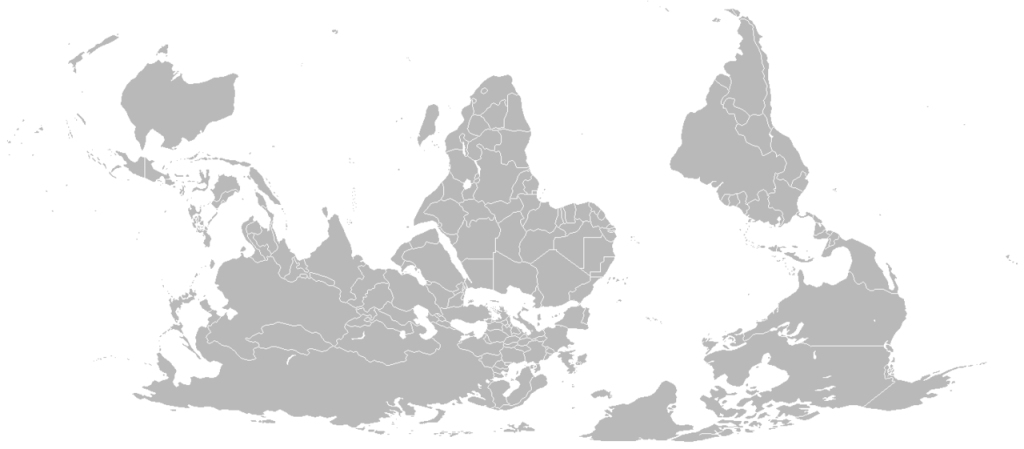Anthropologist Kevin Birth explores what it means to have a global perspective on the church calendar.
Estamos en el sur y como estamos en tiempos de recuperar nuestra identidad, el Gobierno boliviano está recuperando nuestro Sarawi, de acuerdo a nuestro Sarawi, que significa camino, de acuerdo con nuestro Ñan, en quechua, nuestros relojes deberÃan girar a la izquierda.
Translation: We are in the south and since we are in times of recovering our identity, the Bolivian Government is recovering our Sarawi, and according to our Sarawi, which signifies path, and according to our Nan, in Quechua, our clocks should rotate to the left [counterclockwise]. (David Choquehuanca, foreign minister of Bolivia, on the decision to have the clock on the Legislative Palace turn counterclockwise)
I must apologize for the last blog. It was rather pedantic, and pedantry is one of the curses of scholarship. It is easy to become focused on the nuances and complexities of the small domain of knowledge that we study. It is not just that pedantry makes us bores, or that pedantry is a subtle form of narcissism, but pedantry leads us to errors.
Last summer, Bolivia ordered the clock on the Legislative Palace in La Paz to run counterclockwise. This was explicitly a rejection of the representation of time associated with Europeans and colonialism. In the northern hemisphere, clocks mimic the movement of the shadow on a sundial—the hands move clockwise. In the southern hemisphere, the shadow moves counterclockwise. Our clocks represent a northern hemispheric perspective on time.
This raises a problem with my previous blog’s pedantry. It viewed Lent solely from the perspective of someone in the northern hemisphere. God is sovereign over all the Earth, including the southern hemisphere when Lent is at the end of summer and Easter during the beginning of autumn. Sometimes it is too easy to treat the cycles of the north as if they are the cycles of the Earth.
So when I suggested that Lent is a period of coming out of darkness into light, I was only half correct. In the southern hemisphere, Lent is a time of coming out of light into darkness. My summer is someone else’s winter; my nighttime is someone else’s day. In contrast, in the city of God, there is no need for Sun or Moon for the Glory of God illuminates it, and all nations shall walk in that light (Rev 21:23-24). This confusion over light and Lent caused by the globe is a reminder that Lent is a mere season of the Earth’s cycles whereas we are preparing for eternity. Bolivia’s changing the clock on its Legislative Palace reminds us that we often succumb to a (pedantic) view the world from a particular frame of reference.
Indeed, the frame of reference is important for any analysis. On the one hand, one may think that one is sitting still while reading this, but in a different frame of reference, one is moving with the rotation of the Earth as it hurls through space—a rotational speed of over 1000 mph and a orbiting speed of over 67000 mph. You may think you are sitting still, but in another frame of reference you are moving at an incredible speed.
In light of this, why should the northern frame of reference be the dominant one in the global church? Why are the Summer Olympics still called the Summer Olympics even when held during the winter south of the equator, such as they will be next year? I could be pedantic and attempt a global interpretation of Lent that reconciles the differences between north and south, but instead I wish to make a larger point. When one contemplates the diverse cycles of the Earth, one begins to recognize how limited our frame of reference can be even in matters as simple as night and day or summer and winter. One can also begin to recognize how some privileged perspectives get imposed on the rest of the world and limit our understanding.
Questions
1. In what ways is my approach to faith a product of my own pedantry?
2. How does my frame of reference limit how I think about God and the Church?
Prayer:
Lord, so that I might rejoice with those who rejoice, weep with those who weep, live in harmony with others, and not be limited by my frame of reference, teach me to learn and respect the perspectives of others, broaden my horizons, and recognize that Christ died for all the world, not just the tiny portion of it that I know.
Further reading:
Bolivia Congress Clock Altered to Turn Counterclockwise. Available at http://www.bbc.com/news/world-latin-america-28013157
Aimé Cesairé. Discourse on Colonialism. (Monthly Review Press, 2001)
Pope Francis. The Joy of the Gospel. (United States Conference of Catholic Bishops, 2013).
Einstein, Albert. Relativity. (Penguin Books, 2006).
Image: – http://commons.wikimedia.org/wiki/Image:Blank-map-world-reversed.png
Kevin Birth is a professor of anthropology at Queens College of the City University of New York. He studies cultural concepts of time in relationship to cognition, and has conducted ethnographic research in Trinidad and on the current leap second controversy. His publications and presentations cover a wide ranging array of topics including chronobiology and globalization, comparative calendars, timekeeping in Roman Britain, culture and memory, cognitive neuroscience, early modern clocks, and ideas about roosters in the Middle Ages. He is the author of three books: Any Time is Trinidad Time (University Press of Florida), Bacchanalian Sentiments (Duke University Press), and most recently Objects of Time (Palgrave Macmillan).


Leave a Reply